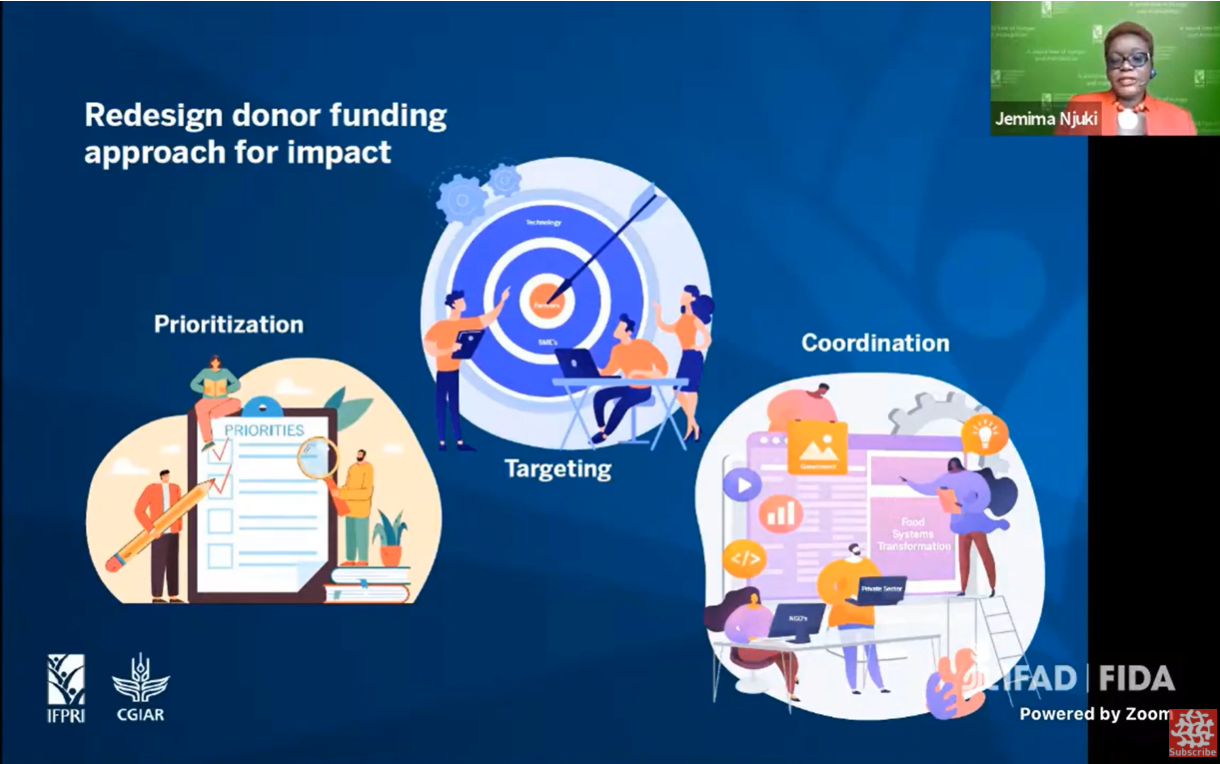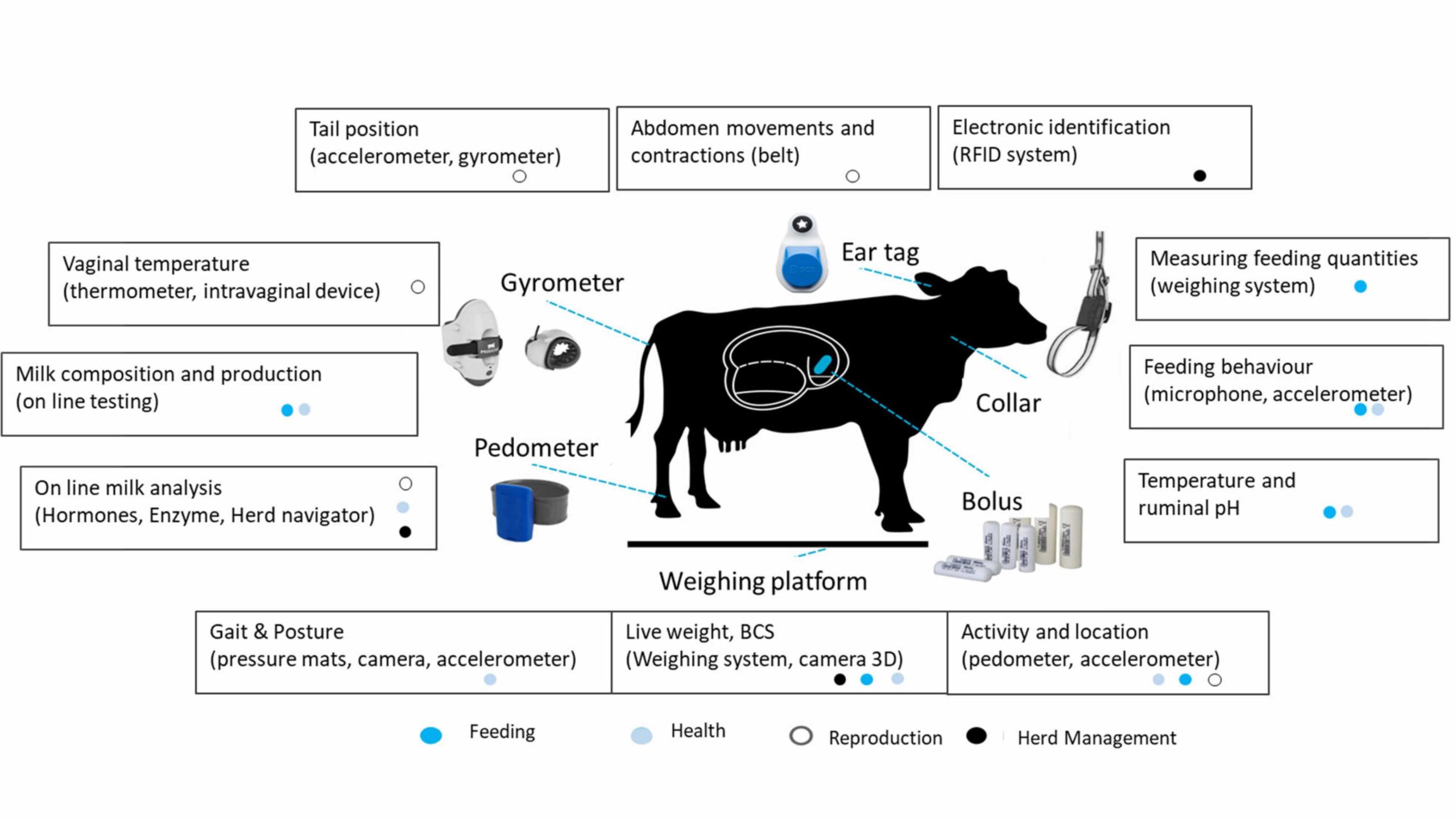Despite tremendous progress made in the last decade to produce enough food to meet the demands of the growing population, around 811 million people lived in hunger in 2020 and nearly half of the world’s population lacked year-round access to adequate food due to climate change, poverty, and the COVID-19 pandemic, according to the 2021 State of Food Security and Nutrition in the World (SOFI) report.
Global food production systems have the potential to improve these numbers, but those systems face large-scale challenges themselves. Many of the workers employed in food systems around the world remain without decent working conditions or wages. In addition, the food production sector is one of the biggest contributors of the greenhouse gas (GHG) emissions that lead to climate change and environmental degradation. Donors have a crucial role to play as agents of change to address these issues—and more broadly in food system transformation.
A Sept. 9 high-level food systems event, Leveraging Change: The Role of Donors in Food Systems Transformation, explored the challenges and opportunities of the current moment. The event was co-organized by the International Fund for Agricultural Development (IFAD), the European Commission (EC), the U.S. Agency for International Development (USAID), and the Global Donor Platform for Rural Development (GDPRD).
“Donor funding towards initiatives and projects is critical to help transform food system . . . But it is key to channel these funds properly,” IFPRI’s Director for Africa Jemimah Njuki said in her opening remarks. She highlighted three broad areas that require radical change:
- Prioritization of effective projects that deliver real benefits to people. Priorities must be country-specific, and each country should take full ownership and lead the agenda to ensure projects align with the country’s medium- and long-terms goals, as well as its capacity to absorb all available financial resources. Women, youth, and other marginalized populations must be prioritized, as they are often ignored and can help drive change.
- Targeting. Existing funds are not always accessible to the groups that need them most: Small- and medium-sized enterprises (SMEs), women-owned businesses, etc. Funds must be better-targeted and redesigned to give small businesses more access and agency.
- Coordination and accountability across major players in the agricultural sector, including government ministries, private sector entities, donors, and implementing partners in low- and middle-income countries is essential to ensure better results, to accelerate development, and to minimize duplication of efforts.
During the panel discussion, increased investments emerged as a common theme to help drive food systems transformation. Today, investments in global food systems remain startlingly low (here is a strategy for changing that). IFAD Chief Financial Officer Alvaro Lario noted that currently, investments in food systems account for only 8% of total official development assistance, and said that it is important to encourage more by establishing robust and resilient food values chains and identifying their weakest links. “Donors must leverage the power of public development banks because they can have a critical role in spanning investments and supporting women and children, as they are often excluded from financial systems,” Lario said.
Donors should invest in sustainable agriculture practices that create food production jobs and strengthen food value chains, said UN Assistant Secretary-General and Scaling Up Nutrition (SUN) Movement Coordinator Gerda Verburg. Increased investments in R&D to promote climate-sensitive agriculture are also pivotal in making food value chains economically, socially, and environmentally sustainable, said EC Director of International Partnerships Carla Montesi.
Sustainability should be at the heart of the food systems transformation, said ACIR CEO Andrew Campbell. “We need an unprecedented level of innovation in our food systems as a whole and not just agriculture . . . to produce more and healthier food, and equitably shared with a smaller carbon footprint,” Campbell said.
Transforming food systems to benefit both people and planet will require a change in mindset among value chain actors, including donors and government agencies, panelists agreed. Verburg emphasized that this shift should include prioritizing the “what” of broad country-level priorities first and the “how” of funding and program design second. “Stop thinking in programs and projects; think in terms of changing the life and situation of communities and families so that they can drive their own futures. That is the systemic change we need,” she said.
Placing countries’ specific needs and priorities first will increase their ownership of food system transformation, something the panelists agreed was key to driving lasting change. Governments and in-country actors should be empowered to identify priorities and challenges; then donors can align behind them to provide necessary funding, human capital resources, and education and training. “It’s critical that we go back to the basics to ensure that we are following the leadership of country partners. If we’re not doing that, then we can create as many multilateral approaches as we want, but they aren’t going to have the desired effect,” noted Jim Barnhart, Assistant to the Administrator at USAID’s Bureau of Resilience and Food Security.
Systemic transformation of global food systems also requires strong political will at the country level. “As a donor, when we’re looking at partner countries, we want to make sure our host country is serious about systemic change,” Barnhart said. When countries are willing to take the lead, donors can better support their goals. This combination of political will and country-level goal setting is crucial in implementing policies such as equitable land tenure.
While the COVID-19 pandemic has threatened global health and economic well-being, it has also increased recognition of the need for widespread changes in areas such as food systems. This could provide a window of opportunity for donors and governments to move forward on systemic transformation. “[There is] a lot of scope for innovation, for rethinking the way in which the system is organized. It’s not about incremental change, it’s reconceiving systems,” Campbell said. “COVID has given us an opportunity to do just that.”
That’s a big challenge, but not out of reach if donors, governments, and value chain actors can come together.
“[Climate change, global inequity and exclusion, and COVID] are the challenges of our generation,” Campbell concluded. “When we look at the Food Systems Summit [and other multilateral efforts], that is a big opportunity to bring us together. There is far more that brings us together than that separates us.”
Swati Malhotra is a Communications Specialist with IFPRI’s Markets, Trade, and Institutions Division (MTID); Sara Gustafson is a freelance writer. This post also appears on the Food Security Portal blog.







